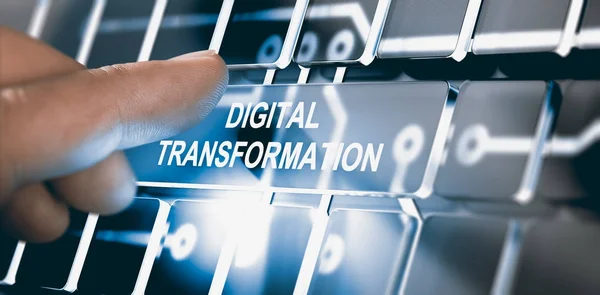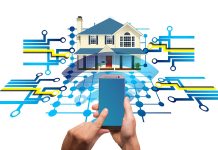The Internet of Things (IoT) is the mechanism of connecting real-world items such as computers, vehicles, machines, buildings, and other objects to one another and the Internet via different networking protocols.
The introduction of this new technology has had an impact on our way of life, as well as how we think and interact with one another. It has also transformed the way we work since it enables extraordinarily large-scale monitoring, control, and automation. Furthermore, as per JFrog, it has had an impact on the digital transformation of enterprises across a wide range of industries as shown below.
· Increased Customer Satisfaction
At this moment, a rising number of clients want your organization to deliver speedy, real-time help and solutions to meet their needs. As such, it should come as no surprise that businesses have an urgent need to develop digital solutions based on cutting-edge technology to improve the consumer experience.
Businesses may now employ Internet of Things (IoT) technologies to get in-depth insights into their customers’ activity and buying habits and use this information to both customize and enhance their customers’ experiences.
· Easier Data Collection and Analysis
Businesses generate revenue by selling products or services, whether informational, digital, or virtual. The Internet of Things is built on a physical device that, via data collection and application, facilitates a transaction between a business and a client. It is up to the organization to interpret these real-world facts into valuable data that will help the company continue and thrive.
This physical device is equipped with a sensor that gathers data from its constituents in real time, which includes the number of items kept inside the device or the system’s temperature.
A software program then converts the data into a digital payload, which is encrypted and packed with network protocols before being transferred to the company’s database.
Once you have this data, you can prepare it and then feed it into your analytics software or AI-powered business process models to get valuable insights into different company processes and generate forecasts.
· Lower Operational Costs
Automating a process will always result in cost savings and allow you to make better use of existing resources. For example, Internet of Things (IoT) energy solutions may assist you in better managing your utility use and waste disposal. This principle applies to a wide range of systems, including lighting, water supply, and heating, to name a few.
· Connectivity
Devices linked to the Internet of Things can connect previously independent computer networks, allowing data and information to be shared. This encourages collaboration and accelerates the digital transformation process. Businesses may create unique products and services by capitalizing on the promise of connectedness. These products and services have the potential to enhance company performance, reduce expenses, and increase customer satisfaction.
Improving monitoring and control of connected devices, as well as integrating data sources, are other critical steps towards reaching this goal.
· Better Decision-Making
Digital transformation contributes to producing actionable insights, which also helps in the making of informed decisions. All data analysis technologies may be useful to businesses in the process of monitoring enhanced insights and performance metrics. It has the potential to offer a better long-term result.
To be effective today, digital transformation projects must incorporate the Internet of Things (IoT), artificial intelligence (AI), and augmented reality (AR).
· Increased Innovation Opportunities
Not only are connected devices beneficial for accessing data, but they can also swiftly integrate with other technologies that are critical for pushing progress, such as blockchain, artificial intelligence, and augmented reality. Your company’s research and development division may make significant progress by combining a variety of powerful technologies and examining the outcomes of their interactions with one another.
Final Words
The Internet of Things is already having a big impact on the digital world, and this is only the beginning. As more firms utilize IoT technology to maintain their competitive advantage, the Internet of Things will expand and become more sophisticated, generating an increasing quantity of data. This data will provide even more insights into business operations, allowing businesses to enhance their processes and improve the quality of customer experience.
The Internet of Things will also be used to automate a wide range of operations and jobs. As a result, firms will realize even higher efficiency gains as employees are freed to focus on more complicated roles. Furthermore, organizations that are prepared to take advantage of the Internet of Things will continue to reap financial advantages such as reduced waste, increased asset utilization, and improved energy efficiency.




















![TamilMV Proxy List Top 30+ [Unblock TamilMV Sites] TamilMV Proxy Unblock](https://technewsgather.com/wp-content/uploads/2023/04/17825836_SL-121019-25870-14-1-100x70.jpg)